"Walk On - The Powerless Life" Series SHOUD 4
Presented to the Crimson Circle December 5, 2015
Original Website http://www.crimsoncircle.com/
[Dedicated to Pete Gibbons, a longtime Shoud attendee who transitioned on October 29, 2015]
I Am that I Am, Professor Adamus, the Dickens I Am, St. Germain (audience cheering and applause).
Welcome, dear Shaumbra, to this highly energized gathering. Welcome all of you who are listening online, all of you who gather here on this day. Ah!
 Lovely,
lovely, interesting, amazing costumes (many audience members are wearing
Christmas costumes). There's something about getting dressed up. There's
something about changing your typical routine that just makes you feel
different. It actually affects the cells in your body. It does, and it affects
your mind as well. It opens it up to new possibilities. But the cells in your
bod- … ehh. (Adamus stops at Sart who is dressed as a woman; audience
laughter) Yes, ehh, yeah, opens it up to a lot of new possibilities. I'm
sorry, ma'am, which toilet did you use at the break? (more laughter)
Lovely,
lovely, interesting, amazing costumes (many audience members are wearing
Christmas costumes). There's something about getting dressed up. There's
something about changing your typical routine that just makes you feel
different. It actually affects the cells in your body. It does, and it affects
your mind as well. It opens it up to new possibilities. But the cells in your
bod- … ehh. (Adamus stops at Sart who is dressed as a woman; audience
laughter) Yes, ehh, yeah, opens it up to a lot of new possibilities. I'm
sorry, ma'am, which toilet did you use at the break? (more laughter)
SART: I don't remember.
ADAMUS: You don't remember. Thank you for my coffee with vanilla (to Sandra), and could I have a little bit of Kahlua in here today?
LINDA: No.
SANDRA: No.
ADAMUS: I think I'm going to need it. Oh, hmm (more chuckles).
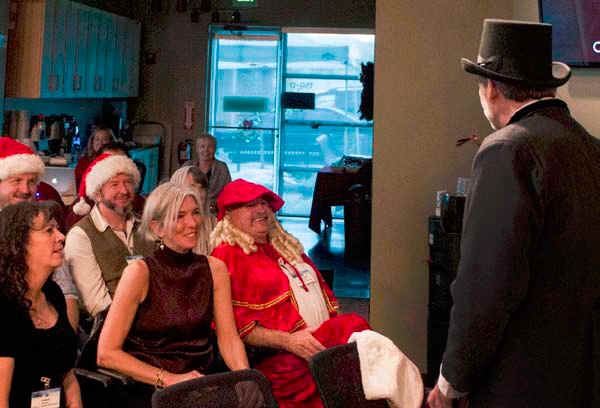 So
welcome, dear Shaumbra. Yes. When you dress up, as Sart will tell you, you
just feel different (laughter). It touches every cell in your body. You're no
longer restricted to an old routine of just being, oh, let's say, masculine
cells. You have both in them. Don't you feel a bit lighter in the loafers?
(Sart nods) Yes, yes. Oh, yes, yes (Adamus chuckles).
So
welcome, dear Shaumbra. Yes. When you dress up, as Sart will tell you, you
just feel different (laughter). It touches every cell in your body. You're no
longer restricted to an old routine of just being, oh, let's say, masculine
cells. You have both in them. Don't you feel a bit lighter in the loafers?
(Sart nods) Yes, yes. Oh, yes, yes (Adamus chuckles).
Shaumbra, I want you to take a moment here. I feel so much more comfortable in this attire, rather than Cauldre's usual (Adamus is dressed in a Dickens type top hat and tails).
EDITH: You look gorgeous.
ADAMUS: Thank you. Thank you, as always (a few chuckles). I spent most of my last lifetime with a hat on. Not one of these baseball style caps, but a gentleman's hat. Yes, and the cane is for Cauldre. He's getting a little up there in the years (more chuckles). I want you to take a look, a feel of the energy in here right now.
Here we are, December 5, 2015. Here we are gathered together in a rapidly changing world. We'll talk about that today. This is the standard, the epitome for new spirituality on this planet. This is not the New Age. No, in the New Age I think they would be sitting around or kneeling or whatever, a lot more devout, serious. Not a lot of laughter. This is not the Catholic Church by any means. Imagine going dressed like that to the Catholic Church (some laughter). Mmm.
SART: I'd be excommunicated (Adamus chuckles).
LINDA: Scary.
ADAMUS: They'd turn you into a priest right away.
LINDA: Ohh!! Ohh!! (audience laughter and applause) Ohh!
ADAMUS: Like I was saying, this is – if you feel it – this is the example of new – it's not even spiritual. It's just consciousness, and you're the ones that are crazy enough to pioneer it. You're the ones who are stepping out and beyond.
It takes a little bit of craziness, maybe a lot of craziness. It takes a lot of humor. It takes a lot of humor. It takes a very good balancing within yourself to be able to break through the norms. Oh, this is such a world of norms.
We're here today, and this obviously not a mosque, and I don't care if you don't like that. (Adamus chuckles) I'll talk to Muhammad about you if you keep – (Linda gasps) – praying at me like that.
LINDA: Shut up!
ADAMUS: I know him, he's a good friend. He's part of the Ascended Masters Club. Truly.
So you're able to laugh, you're able to live, you're able to go beyond, and that's what I love about working with each and every one of you, love about our times together.
So today we're going to have a four-course Adamus meal …
LINDA: Uh-oh.
ADAMUS: … of consciousness. Yes. In the first course, the appetizer will be a few very relevant questions with audience interaction. So do prepare yourself to get that microphone today. Edith, why were your eyeballs rolling? (some chuckles)
LINDA: Mmm?
 ADAMUS:
I saw the eyeballs – here's Edith. Oh, Edith, do it again. The camera's on
you.
ADAMUS:
I saw the eyeballs – here's Edith. Oh, Edith, do it again. The camera's on
you.
EDITH: Oh, I had a bug in my eye (laughter).
ADAMUS: You're about to get one somewhere else (more laughter and audience says “Ohh!”). Your brain, obviously. Obviously. You look gorgeous today, my dear.
EDITH: Thank you.
ADAMUS: Yes. She does. She really does. You look younger. You don't look as burdened, Edith. Now, Edith, you're quite the rock star all around the world. There goes that eye thing again (laughter). You're quite the rock star around the world. People watch – “How is Edith doing this month? What is Edith – how is she sassing back to Adamus?” But it's like a burden has been lifted. What is that?
LINDA: Oh, wait. You want the mike?
ADAMUS: Yeah, yeah, microphone.
EDITH: I'm just … oh.
LINDA: Whoa, oh. Hold on.
ADAMUS: This is an Edith moment.
EDITH: Thanks.
ADAMUS: We're going to do a whole film someday – Edith's Moments (some chuckles). What's with your eyes today, my dear? What's with the eyes? The eyes, they keep, like, they keep rolling – mmmm-mmm-mmm-mmm – like that (Adamus is rolling his eyes; more chuckles). So, Edith, what is it? You look younger.
EDITH: I'm just feeling so comfortable with myself and I love myself so much I just can't help rolling my eyes (laughter).
ADAMUS: But why do you look a little younger, a few less burdens than normal?
EDITH: Well, I am younger!
 ADAMUS:
Good. Something happening with your biology?
ADAMUS:
Good. Something happening with your biology?
EDITH: Of course, it's always healthy.
ADAMUS: Always healthy.
EDITH: Yes.
ADAMUS: Ehh, mmm.
EDITH: It is.
ADAMUS: It's gotten a little better lately. Ehh, we'll come back to that later. Thank you.
In the first course, we're going to be doing some audience questions and answers, so do prepare yourself; any one of you could get the microphone at any given moment. You never know, for the Grinch is in the room carrying that microphone (Linda is dressed as the Grinch). Whether you're here for the first time, whether you're one of the old-timers, as they say, you may get the microphone today. Hm.
Course two is going to be discussion, lecture, observations, bringing things into clarity in course two. Course three will be a personal merabh into fantasy, beyond the mind. Yes. Course four … (someone says “Or out of the mind”) Well, out of the mind. Well, it's out of the body. I don't know about the mind.
Course four, ah, I'll leave it for suspense and mystery, to be determined later. (someone says “Oooh”) Ooh. Yes. So, exciting. Exciting, exciting.
First Question
So the first question is, and are you ready, Grinch, with the microphone?
LINDA: Oh, yes. Oh, yes.
 ADAMUS:
The first question is: here we are at the end of the calendar year; it's
always a good time to take an assessment how the year was for you, take a look
at any new resolutions – what I call personal lies – that you're going to
make for yourself for next year. So the first question is, in this year, in
2015, on a scale of one to ten, with ten being the highest, the best, one
being the lowest, the worst, how were you with being able to be natural? How
were you with being able to allow? How
were you with staying out of all the mental turmoil and allowing this thing
called enlightenment to come
naturally to your body and to your mind?
ADAMUS:
The first question is: here we are at the end of the calendar year; it's
always a good time to take an assessment how the year was for you, take a look
at any new resolutions – what I call personal lies – that you're going to
make for yourself for next year. So the first question is, in this year, in
2015, on a scale of one to ten, with ten being the highest, the best, one
being the lowest, the worst, how were you with being able to be natural? How
were you with being able to allow? How
were you with staying out of all the mental turmoil and allowing this thing
called enlightenment to come
naturally to your body and to your mind?
I love the cane.
LINDA: Yeah, we get that.
ADAMUS: On a scale of one to ten, how natural were you in 2015? Take a moment and feel into it. How natural were you? Mmm.
Okay. Linda, we're ready with the microphone (Adamus reaches for his coffee and knocks over a candle on the table). Oops (someone says “Oh, shit” and some chuckles). Thank you. It's a magic candle. Never burns out. Yes.
SAM: Six.
ADAMUS: Six.
SAM: Six.
ADAMUS: Is that an inspiring number?
SAM: Could be.
ADAMUS: Could be.
SAM: Sure, why not?
ADAMUS: Yeah, yeah.
SAM: It's a great number.
ADAMUS: Great number, yeah. I mean, would you – if I had asked at the end of last year how you're going to do with being natural, allowing things to come to you, allowing your own enlightenment into your body, into your mind, would you have been happy with a six?
SAM: I would have not been super excited about it, probably, no.
ADAMUS: Right, not super excited. Okay. Next year, 2016, I believe it's going to be, what do you aspire to on that same scale?
SAM: I'm just going to be let it be what it is.
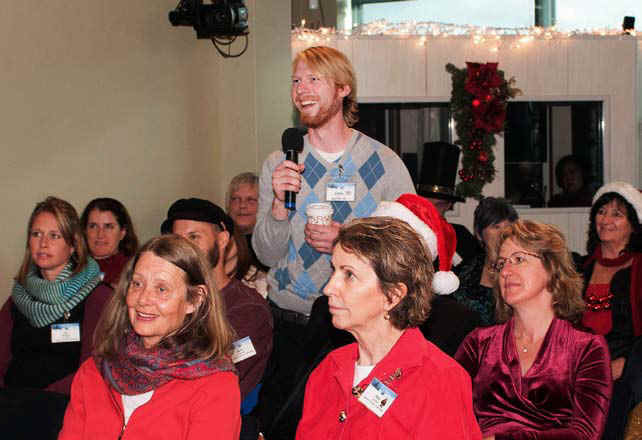 ADAMUS:
That sounds like a ten to me (they chuckle). Naturally. Good. I'm going to
pick on you for – I mean, discuss with you for a moment here (a few
chuckles).
ADAMUS:
That sounds like a ten to me (they chuckle). Naturally. Good. I'm going to
pick on you for – I mean, discuss with you for a moment here (a few
chuckles).
SAM: Okay.
ADAMUS: So I see this stop, start, stop, start, think, fall back, think, get in trouble…
SAM: Uh huh.
ADAMUS: … relax, things come. So, did you notice that pattern?
SAM: Yeah, yeah.
ADAMUS: Yeah, yeah.
ADAMUS: And where are you right now, today, in that patterning?
SAM: I think fall back, all of the above.
ADAMUS: All of the above. Okay.
SAM: So far today.
ADAMUS: What are you going to do to be more natural in all of this?
SAM: I mean, to think about that it's just getting into the loop again.
ADAMUS: Kind of.
SAM: Yeah.
ADAMUS: Kind of.
SAM: So I don't know if there's a good answer to knowing that.
ADAMUS: Are you going to stop thinking?
SAM: Am I going to stop thinking?
ADAMUS: Yeah, yeah.
SAM: Unlikely.
ADAMUS: Unlikely, highly unlikely. Okay.
SAM: Yeah
ADAMUS: Good. Okay, Thank you.
SAM: Yep.
ADAMUS: Next. Where are you – scale of one to ten – allowing your enlightenment in your body, your mind and everything to come naturally?
CHERYL: I would say seven.
ADAMUS: Seven! A little better there than Sam, good. Are you happy with that? (she chuckles) I guess we know the answer.
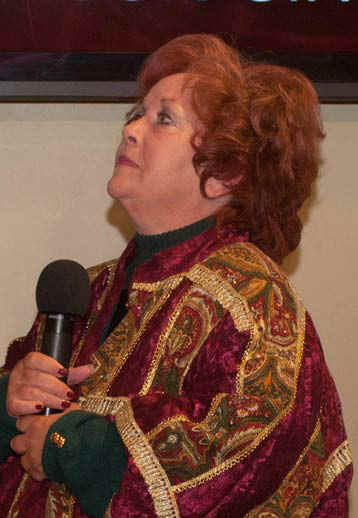 CHERYL:
Well, of course I would prefer my enlightenment be right now and have
everything …
CHERYL:
Well, of course I would prefer my enlightenment be right now and have
everything …
ADAMUS: Sure. Well, it can be.
CHERYL: Okay, well, I choose it right now.
ADAMUS: Okay, but can you allow it? Ah!
CHERYL: Yeahh!
ADAMUS: Stop right there – “I choose it.” Good. You're all there. I know you're all there, but can you allow it?
CHERYL: I think so, yes.
ADAMUS: That was not such a …
CHERYL: That didn't sound, that didn't sound enthusiastic, did it? (she chuckles)
ADAMUS: No. Well, yeah, no, no, no, no, no. No, you've all chosen it, and therefore it's going to be. And what makes it rough and difficult at times is you're just not allowing it. You're not allowing the trust, allowing that it's real. There's still that question – there is still that question – “Is this all real?” Do we just gather like this once a month to have a little whoopee time together, to share a few laughs, to …
LINDA: Whoopee time?
ADAMUS: … dress up or dress over (some chuckles).
LINDA: Whoopee time?
ADASMUS: To provide some relief from the tedium of everyday life or is this really happening?
(she pauses)
How are you different right now than you were five years ago?
CHERYL: Oh my gosh!
ADAMUS: Yeah.
CHERYL: Tremendously.
ADAMUS: Yeah. In what ways?
CHERYL: (pausing) I'm a lot …
ADAMUS: Just a minute (Adamus swishes something away in the air near her head). Good.
CHERYL: Thank you.
ADAMUS: There was an entity hanging a little too close. A very nice one, but …
CHERYL: Okay.
ADAMUS: … just like “She's on camera right now…” (she chuckles) Backed away.
CHERYL: “So I'm going to be on the camera with her.”
ADAMUS: Yeah.
CHERYL: I am more trusting of the universe, of things coming to me.
ADAMUS: Oh, universe, schmuniverse. The universe doesn't know anything. I'm sorry. I know what you meant, but I don't like that term. The universe. What? What? I Am.
CHERYL: I am more trusting of myself and my I Am-ness and being in it.
ADAMUS: Good, because the universe will smack you up any time it possibly can.
CHERYL: Yeah, it has.
ADAMUS: You notice that? Any time the universe can play a joke on you, any time the universe can smack you a few times, it will, because the universe is just energy that's waiting, just hanging out, waiting in neutral, waiting for consciousness – or lack of consciousness – and it'll smack you up. So, yeah, it's you that is creating this.
CHERYL: I love myself more than I used to.
ADAMUS: Good. Good.
CHERYL: I'm more accepting of who I am.
ADAMUS: Yes.
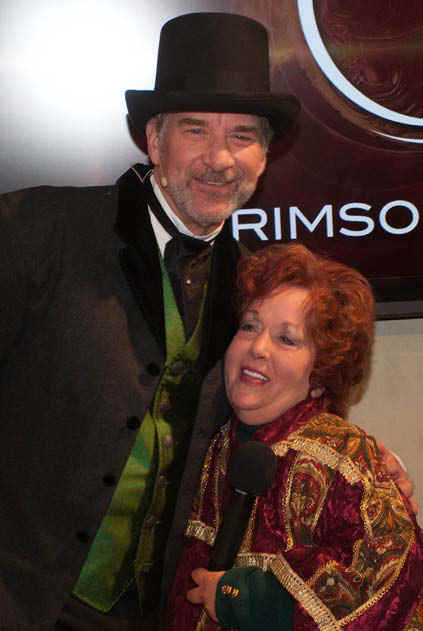 CHERYL:
Appreciating who I am.
CHERYL:
Appreciating who I am.
ADAMUS: Good.
CHERYL: Because I think I'm pretty neat (she chuckles).
ADAMUS: So do I.
CHERYL: Oh, thank you. I think the same for you too (she chuckles).
ADAMUS: Thank you. Mutual admiration society right yeah.
CHERYL: Oh, that's true! That's true! (they both laugh)
ADAMUS: Good. So, seven, I like that number. Where are you going to go this next year?
CHERYL: I'm going to allow it to be more open.
ADAMUS: Good. On a scale of one to 10…
CHERYL: Yeah, at least.
ADAMUS: At least – at least, yeah.
CHERYL: At least a ten.
ADAMUS: Okay. Good, thank you.
CHERYL: Thank you very much.
ADAMUS: Two more. Same question before I get to a different question. How did you do this year on your natural scale? Meaning that enlightenment is going to come to you, but how often do you sit around worried about it and stressed? Yes, my dear.
NANCY: I think about an eight, maybe even a nine.
ADAMUS: Yeah, I'd give you a nine. I truly would. Yes.
NANCY: Good.
ADAMUS: I've felt and watched and … yes. Good. Next year?
NANCY: At least a nine.
ADAMUS: At least a nine. What do you do? What advice can you give for Shaumbra here and watching from all around the world to just allow this, this natural evolution into enlightenment?
NANCY: Well, I think getting really old helps a lot (laughter and some applause).
ADAMUS: Well, and there truth in that, and then, therefore, it is happening to everybody here. Why old? What does that have to do with it?
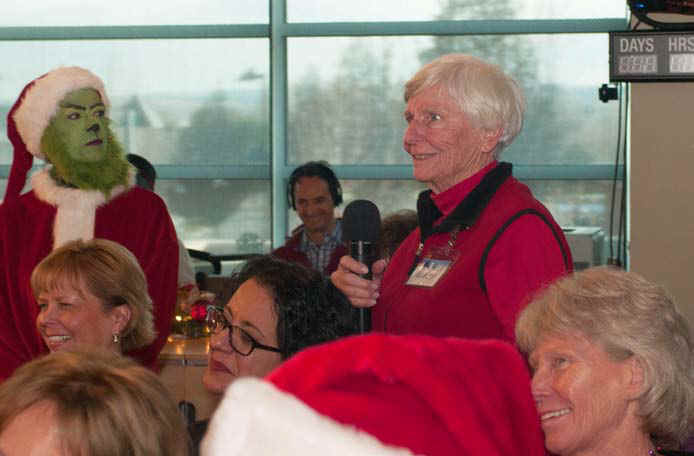 NANCY:
I don't know. There's just a freedom in it.
NANCY:
I don't know. There's just a freedom in it.
ADAMUS: There is. So, if you don't mind me going down the same trail, are you afraid of death?
NANCY: No.
ADAMUS: Yeah, and you shouldn't be. Are you afraid of getting a disease? Physical disease.
NANCY: No.
ADAMUS: Good. Good, because so many worry about that and then they don't really live. They're worrying about some impending disease; well, the 'universe' is going to give it to them then.
NANCY: Well, if I get a disease I'll just die.
ADAMUS: Exactly. You'll come visit me and the others. We have a great Ascended Masters Club. I'll get you a guest pass or maybe you'll have your own pass, if you know what I mean (she chuckles). So, good. Thank you.
One more. Where are you on the natural scale one to ten?
WOLFGANG: Me?
ADAMUS: Yes. Yes.
WOLFGANG: Oh.
ADAMUS: This happens here at the Crimson Circle. We pass the microphone.
WOLFGANG: Okay.
ADAMUS: Like the natives used to pass the peace pipe. We pass the microphone.
WOLFGANG: (chuckling) Three.
ADAMUS: Three. So you're a mental guy.
WOLFGANG: I am (he chuckles).
ADAMUS: Yeah, yeah. What kind of work do you do?
 WOLFGANG:
A software engineer.
WOLFGANG:
A software engineer.
ADAMUS: Ohh! (Linda giggles) Oooh. Who would have guessed? (Wolfgang laughs) So, software engineer, and why do you get so mental?
WOLFGANG: Pppffbbb! I would say because there are really a lot of things to worry about.
ADAMUS: Yeah, there are, if you like to worry about things (Wolfgang chuckles). And you have a very keen mind, very highly trained mind, and it's rather interesting that you're here today, because we're going to be doing something with that. So you get very mental about things. You think it through. You churn in the mind. How far has that gotten you this year?
WOLFGANG: Mmmm. Not very far.
ADAMUS: Not very far. At least it got you here to Colorado.
WOLFGANG: Yeah! (he laughs)
ADAMUS: What are you here for? For the Shoud, of course.
WOLFGANG: For one week of software engineering training in Boulder.
ADAMUS: Wow! (they chuckle) Boom! I will pose something to you. Based on what we're going to do here today, based on how open you are to receiving it, and let's say it changes some things in your mind and you go to this software engineering big celebration, programming, learning and you just don't get it. You're sitting there, the professor, the lecturers are talking, you're going through all these things that software engineers do, I don't know; you're engineering, engineering and you just don't get it. It's just not there. You lost it, let's just say. You lost it. What next? What are you going to do? Are you going to hop on the plane and go back home and, I don't know, quit your job? Are you going to wonder what's wrong – yeah, you will wonder what's wrong (Wolfgang laughs). Yeah. You're sitting there and you just don't get it. You just don't get it. What are you going to do then? You're just blank. Some of you had that recently? (audience says “Yes”) Things you've been doing over and over for years and years that you become proficient at; one day you're sitting in front of the computer screen, you're supposed to be doing something and you realize you've been sitting there for three hours staring at a screen and nothing's happening up here. What do you do?
WOLFGANG: Good question. So …
ADAMUS: I know (Wolfgang laughs).
WOLFGANG: There is an examination with the training, and of course, I've thought about what would happen if I would not pass this exam.
ADAMUS: Yes. What if you don't?
WOLFGANG: Uh. My life would go another direction, I think (laughter).
ADAMUS: Are you ready for that?
WOLFGANG: Pffff!
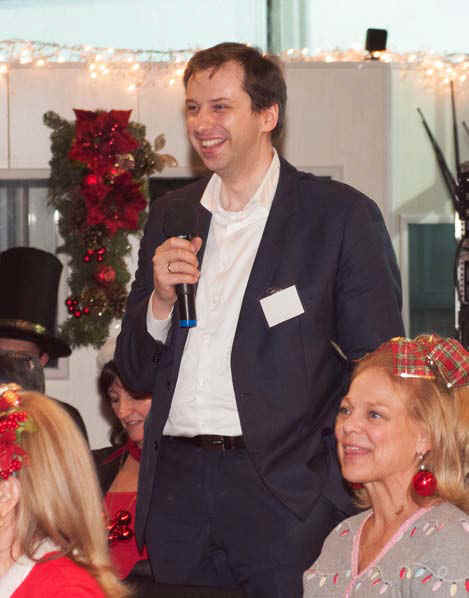 ADAMUS:
Pfff! Got a “pffff's” today. Yeah. Something wrong with the
microphone? (Wolfgang chuckles) What if you don't pass the exam? Is it the end
of the world?
ADAMUS:
Pfff! Got a “pffff's” today. Yeah. Something wrong with the
microphone? (Wolfgang chuckles) What if you don't pass the exam? Is it the end
of the world?
WOLFGANG: No, of course not.
ADAMUS: No, no, no. Are you just going to feel crappy about yourself? “Bad programmer.”
WOLFGANG: Partly, yes (he chuckles).
ADAMUS: Yeah, yeah. “Inferior programmer.” Yes. What are you going to do with it? (Wolfgang sighs) I'll tell you what you're going to do it because I'll be right on your – ahem – software engineering mind about it. You're going to say, “It's all appropriate.” There's nothing wrong. There's nothing wrong just because you're staring in front of the computer screen. It's not that you're getting older or you have jet lag or altitude lag or whatever. It's all appropriate. You don't pass the exam; you get a big smile on your face and say, “It was time. It was time anyway.”
Now, you may pass the exam, and you will pass the exam actually (Wolfgang laughs). You're going to pass the exam, but you also now have this potential that I gave to you and you're going to be thinking about it, because you already have been, and you're going to say to yourself, “You know, gosh, I was local linear. I was really focused on the next exam and the next exam, but uh-uh, there's something else.” And maybe you could still be a programmer. Maybe, just maybe, programming beyond – far beyond – what you've ever known before. Not programming in the local linear terms anymore.
WOLFGANG: Yeah, so, of course, I was thinking about that (he laughs). Because I always do.
ADAMUS: Yeah, yeah.
WOLFGANG: When I came here, I had this question in mind, okay. I did my diploma in electrical engineering and then I did my Ph.D. and so I will do this big exam and everything. So it's just a line where exam comes after exam and …
ADAMUS: Yeah, and how many …
WOLFGANG: … it doesn't really matter.
ADAMUS: How many degrees can you have?
WOLFGANG: I think I have a little bit too much (laughter).
ADAMUS: Ehhh, no, degrees are good. You've shown something to yourself, but where do you go from here? And that's the nagging – I'm going to leave you to be with all that and summarize this. Yeah, not too bad. I'm going to kick your ass if you stay in your mind. I'm going to get you out of that, because there's something beyond that and I'm going to come to this point in just a moment here. But thank you.
WOLFGANG: Thank you.
ADAMUS: Thank you. So, thank you very much (audience applause).
LINDA: Thank you for being a good sport.
ADAMUS: How much more can you tolerate? How much more of the linear path, how much more of the mind, how much more of even the pursuit of your spiritual goals that, what, 10, 20, 30 years ago you said, “This is the only thing that's important to me now?” How much more of that? And that's the point that we're at, you're at; it's a break point.
Up to now it's been all little bumps and nuances and adjustments, but now comes the break point and like never before. And that's why today we're going to particularly do some work, Timothy, with going out of the mind. Yeah. Yeah. Good.
Second Question
Next question I'm going to ask is, humans: is their assessments of themselves – people in general, assessment – is it more positive or more negative – the perception, the assessment of themselves, more positive or negative? I'm saying how do people really feel about themselves? Is it generally better or worse? Yes, yetter or worse? Their assessment of themselves, David, and not necessarily you, but just people in general.
DAVID: People in general would be worse.
ADAMUS: Worse. Okay. And why?
DAVID: They judge themselves of trying to live a perfect life.
ADAMUS: Okay.
DAVID: Which is impossible, as we know.
ADAMUS: Right. The assessment of themselves tending to be, you know, you say more on the negative than the positive; is it like just one degree negative, two degrees negative? Is it major negative? How is that balance?
DAVID: It's … consciously it's different than subconsciously.
ADAMUS: Okay.
DAVID: And subconsciously it's major negative. Consciously, it's not as bad.
ADAMUS: Okay. So the next part of that question is, then, how do they perceive the world around them; is it more positive or more negative?
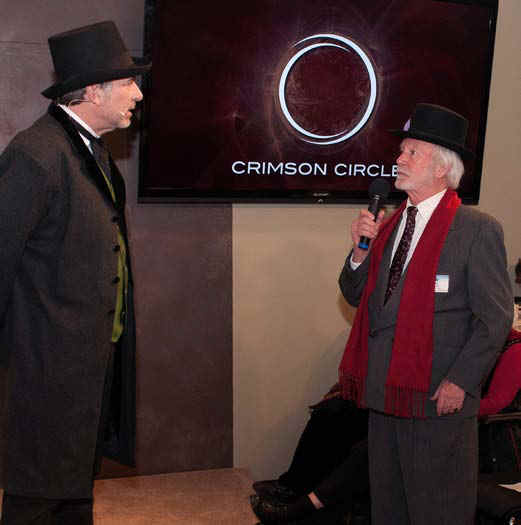 DAVID:
More negative.
DAVID:
More negative.
ADAMUS: More negative.
DAVID: Especially now at this time.
ADAMUS: So we got a double negative.
DAVID: Yes.
ADAMUS: Double negative, okay, because they're negative about themselves, and their perception of the world around them is pretty negative. What are the negative things about the world around them?
DAVID: It's not working, as far as they can see.
ADAMUS: Right.
DAVID: Be it politics or terror, taxation, equality, freedom.
ADAMUS: Good. Excellent. Good observation. Yeah, it's stacked up against them. Good. Okay. Great, thank you. Next.
DAVID: Thank you.
ADAMUS: Good answer, David (some light applause). Big golf applause (David laughs).
Yes. So, first part of the question, are people generally more negative or positive about their self-perception?
LARA: Negative.
ADAMUS: Negative. How much negative?
LARA: Mmm. Quite a bit.
ADAMUS: Like, let's say, zero is just neutral and then there's negative one, negative two, negative three, each negative going down is worse and worse.
LARA: So to a ten, a negative ten, I would say probably negative seven or eight.
ADAMUS: Seven, pretty bad. Wow. If I was just starting out in life and wanted a career, I'd become a psychologist or a psychiatrist based on that or a pharmacist, one of the three. They're all about the same. So, pretty negative, pretty negative about themselves. How about their perception of the world around them?
LARA: Well, I think it probably matches.
ADAMUS: Matches.
LARA: Yeah.
ADAMUS: Yeah, okay.
LARA: That makes sense.
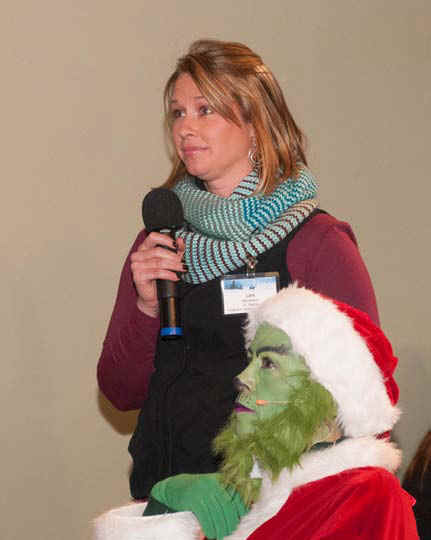 ADAMUS:
Yeah. And what are the negatives about the world around them?
ADAMUS:
Yeah. And what are the negatives about the world around them?
LARA: I guess at this moment just everything that's happening in the world.
ADAMUS: Everything.
LARA: Yeah.
ADAMUS: That's a good way to sum it up. Everything.
LARA: Yeah.
ADAMUS: Give me just a couple that come to mind right away. Negatives.
LARA: Well, the terrorism that's happening.
ADAMUS: Yes. Does it bother you?
LARA: The one in Paris bothered me a lot.
ADAMUS: Yeah?
LARA: Yeah.
ADAMUS: It affected you?
LARA: Yeah, very much.
ADAMUS: Yeah. The ones this week?
LARA: I chose not to tune into them and they really didn't.
ADAMUS: Right. Couldn't tune into them, almost?
LARA: Yeah, yeah.
ADAMUS: Yeah. Do you think about it a lot?
LARA: No, I don't.
ADAMUS: Hm. Okay.
LARA: No.
 ADAMUS:
Good. Okay.
ADAMUS:
Good. Okay.
LARA: But I did for, you know, a couple weeks ago.
ADAMUS: It's emotionally draining.
LARA: Yes.
ADAMUS: It's energetically exhausting. When I look at energy fields of people or groups or whatever after incidences like Paris or San Bernardino, the energy levels – not just of a few people, but of everybody – goes way down. There's a combination of a numbness and a sadness that's an interesting combination.
LARA: Yes, that is.
ADAMUS: Yeah. So you're seven and seven – negative, negative.
LARA: Uh huh.
ADAMUS: Okay. Great. So couple more, dear Linda. Thank you. Good observations. Couple more.
LINDA: Oh, let's go and ask a counselor.
ADAMUS: Oh, wow.
LINDA: Yeah. By the way, she's willing to be a Shaumbra counselor, if you think you need one. You can get a hold of Julie Mack (Adamus chuckles). new Energy spiritual counselor.
ADAMUS: We could flash her phone number and email under the screen.
JULIE: Excellent.
ADAMUS: Yes. So people's …
LINDA: She'll do phone sessions.
ADAMUS: … perception of themselves. You work with people …
JULIE: Uh huh.
ADAMUS: … in a counseling environment. Regular people or Shaumbra people?
JULIE: I see a huge range. So …
ADAMUS: A huge range.
JULIE: I see, yeah, I see Shaumbra and conscious individuals.
ADAMUS: Yeah, okay.
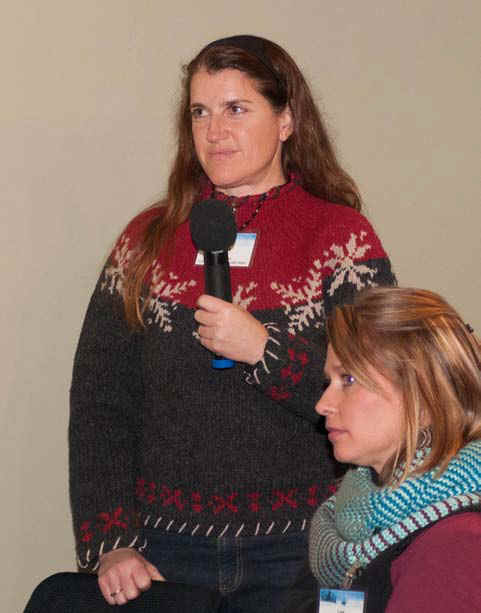 JULIE:
So, it varies. I see people ranging from three to ten. So …
JULIE:
So, it varies. I see people ranging from three to ten. So …
ADAMUS: Three to ten. Okay, so you think it's a pretty … overall, what number would you give it?
JULIE: I was going to say seven.
ADAMUS: Seven. Negative seven or positive?
JULIE: Negative seven.
ADAMUS: Negative seven.
JULIE: Well, of mass, yeah.
ADAMUS: Mass consciousness, negative perception of self. Okay. Okay, and then their perception of the world around them?
JULIE: It's similar.
ADAMUS: Similar.
JULIE: Yeah.
ADAMUS: Boy. We're really crapping out today here (they chuckle). And what are the big things on more of the world around them, issues that they're very negative about?
JULIE: I definitely see, any time that world events happen, so there's people get very negative about …
ADAMUS: Just day to day, if you were to …
JULIE: About politics right now.
ADAMUS: Politics. Okay, but when they come in to talk to you, what are the issues that they're really talking about, other than the personal, but when they talk about life?
JULIE: So depression and anxiety. Everybody … I see lots and lots of people.
ADAMUS: Do they know why they have it?
JULIE: What I see a lot is I talk to people above living, that lots of people are so fearful and not doing things that they would enjoy, that they want, that they like.
ADAMUS: They're kind of like close in. They cocoon.
JULIE: Very much. Absolutely.
ADAMUS: Yes, okay. And where do they feel this depression and anxiety originates? Is it just a biological thing that's happened?
JULIE: That's the story that most people come in with.
ADAMUS: Yeah. Do they ask you for drugs?
JULIE: I don't prescribe, but they definitely … it depends.
ADAMUS: Yeah.
JULIE: I attract people that often don't want to use medication.
ADAMUS: Right. Percentage-wise, out of the people that come seeking your advice, and obviously you don't prescribe, but you can recommend, what percent really kind of already think they want medication before they come to see you?
JULIE: Probably about thirty percent.
ADAMUS: Thirty percent. Okay. That's pretty high. That's pretty high. Okay. Good. Excellent. Excellent. One more. One more.
LINDA: Okay. I need to get over to this side of the room. Let's see. Mmm, mmm, mmm. Mm, mm, mm.
ADAMUS: In general, what are people's perceptions of themselves? Yes.
Yes, my dear. You look gorgeous today.
CAROLINE: Oh, thank you.
ADAMUS: Yes.
CAROLINE: Thank you.
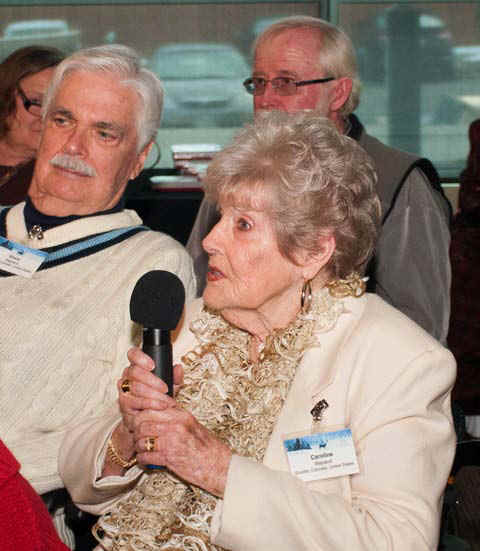 ADAMUS:
What are people's perceptions of themselves, on a scale of one to ten?
ADAMUS:
What are people's perceptions of themselves, on a scale of one to ten?
CAROLINE: On a scale of one to ten, people's perception of themselves?
ADAMUS: Yes.
CAROLINE: I think most people don't have a very good impression of themselves and I think we have been conditioned by the church and by our upraising, and learning to love yourself I think is one of the most difficult things we have to do in life.
ADAMUS: It is.
CAROLINE: And when someone gives you, pays you a compliment, sometimes it is hard to just say thank you, because we don't believe it ourselves.
ADAMUS: But you took my compliment very well, indeed.
CAROLINE: Well, you are just wonderful.
ADAMUS: Yes, I kind of am (laughter).
LINDA: So honest.
ADAMUS: And so are you. Well, in a way, it is a funny thing – now that you brought it up – you give somebody a compliment, how often do they almost resist it? They duck it or, “Oh, gosh” or “Shucks” or it brings up something in them, almost anger sometimes. It's very strange.
I'd like to see a world where somebody can compliment you, say, “My, you look young today,” and instead of them giving you a lot of guff about it, they simply say, “Absolutely,” like Edith did. “Absolutely, because I'm living and I'm young.” Yeah. I ought to hook you two up. Anyway. So human's perception on a scale of one to ten, not so good.
CAROLINE: Not so good.
ADAMUS: Would you give it a five?
CAROLINE: For everybody? Or are you talking just myself?
ADAMUS: Yeah, in general. Everybody.
CAROLINE: I think probably a five.
ADAMUS: Five, okay.
CAROLINE: And I think they're, you know, in Shaumbra, this is one of the … we are learning to experience and to accept that, you know, that we are beautiful people. We are wonderful people, and it's that growing, that experiencing over and over that helps us.
ADAMUS: And now the same question, but on a scale of one to ten, how do people perceive the world around them? On a scale of one to ten, is it more positive, more negative?
CAROLINE: I think it's more negative. It's sad, but I think, you know, all the things that are happening around us, how can we, you know … it's hard to see the light.
ADAMUS: Yeah. Good. Thank you so much.
CAROLINE: You're welcome.
People's Perceptions
ADAMUS: So – we're gathered here today in the room, also online – so there is a sadness. There's a sadness with Shaumbra. There is a sadness and a wondering, “What's happening? What's going to happen next?” And it's very easy, by the way, at times like this, to get distracted by the latest product, program or person, by gurus, by crystals, by some new ointment that's going to clear everything up, and it's not. It's not.
And, you know, I say this all the time that everything you need, you already have. Everything. You don't need anything else. It's good to talk to others once in a while, yes, but there's not some cure-all thing. It's not taking any sort of medication, drugs – legal or illegal – or anything else. You already have it within yourself. But there is so much pressure right now. It's very easy to get distracted.
 You've
seen it with others who have sat in these chairs before – and not that they
need to sit here – but suddenly there is the new guru in town. Suddenly,
there's a new product. Suddenly, there's a new – what is this drug you take
to go off on these psychedelic spiritual journeys? He's smiling over there
(some laughter). So it's very easy to get distracted and try the newest
greatest thing, particularly when you get sad, particularly when you're
wondering, “What is happening in the world right now? It's crazy. It is very
crazy out there.”
You've
seen it with others who have sat in these chairs before – and not that they
need to sit here – but suddenly there is the new guru in town. Suddenly,
there's a new product. Suddenly, there's a new – what is this drug you take
to go off on these psychedelic spiritual journeys? He's smiling over there
(some laughter). So it's very easy to get distracted and try the newest
greatest thing, particularly when you get sad, particularly when you're
wondering, “What is happening in the world right now? It's crazy. It is very
crazy out there.”
But to my point that actually, looking at it energetically, people are more satisfied with the perception of themselves than they are with the world around them. People are very judgmental of themselves, but at least they know where the weaknesses are. They know generally what their strengths are. They know kind of where they are. There's a lot of confusion about it as well, but generally they feel better in their local linear environment.
I'm not saying they feel great about themselves. I'm not saying that people are, you know, really feeling happy within, because happiness level, you know, is a funny thing to measure. But there's probably less happiness in the world right now – people with themselves – less happiness than there was 30 years ago, 50 years ago. In an interesting way, so many people are lost right now. You know, so many of the people, you in particular, have a pretty good life. You have cars, computers, houses, things like that; a lot of people don't. You generally have a pretty good life and you're like, “Well, what should I being doing? Where should I go? What's next?” And for Shaumbra, it's intensified. But people in general, they get to a certain point of the material needs in their life being taken care of and then they get bored, distraught, even sad. Yeah.
But generally people feel better about their local linear environment – themselves, their immediate surroundings – because they know kind of what's going to happen the next day. It's like I've said so often, predicting the future is very, very easy to do. Tomorrow is going to be pretty much like yesterday for most people. And they're happy with that. They're really happy with that, until they start awakening. Then it's hell.
They are not very comfortable; they do not have a good overall perception about the world. If you ask a person how their life is going to be in five years or ten years – not just Shaumbra, but anybody – it's actually, I'm going to rate it about a 5.5 to maybe six. If I say to them, “Where are you going to be in ten years?” “Well, I'm going to have learned a little bit more. I'll be making a little bit more money at my job. I'll have maybe a few more friends. I'll have a new car, I've been wanting to get one for a while.” You see, they kind of project out. Not big. I mean, not big things. A little bit more money. You know, when you ask somebody how much more do you think you're going to be making in ten years than you are right now? Average answer when I do this or I feel it, average answer about 20 to 22 percent more. That's kind of sad. You know, that's really sad. That's what they're living for.
But at least it's going in an uphill direction. When the question comes to people about their perception of the world – “Where is the world going to be in ten years, twenty years?” – it's scary what people think. It's really scary. Answers range from “I can't even imagine out ten years, much less five years. I don't know. The world's at some sort of weird tipping point.”
 When
you ask them about the world in ten years, what it's going to be like, the
majority – not all, but the majority – of people say that they're going to
be living in very protective environments, created emotionally or physically.
In other words, they're going to withdraw into their smaller, smaller worlds,
because the world out there is getting scarier. The world out there is filled
with a lot of fear right now and most people, when you ask them about humanity
in ten years, it almost makes them nauseous, because they're seeing what's
happening right now.
When
you ask them about the world in ten years, what it's going to be like, the
majority – not all, but the majority – of people say that they're going to
be living in very protective environments, created emotionally or physically.
In other words, they're going to withdraw into their smaller, smaller worlds,
because the world out there is getting scarier. The world out there is filled
with a lot of fear right now and most people, when you ask them about humanity
in ten years, it almost makes them nauseous, because they're seeing what's
happening right now.
The actual fact of the whole matter is – it's kind of interesting. The actual fact is – we're going to talk about this in ProGnost – the world is going to some amazing places. Most people just can't see it right now.
The World Today
As I talked about in Keahak last week, technology is growing exponentially. By itself, that's kind of a big deal, but the implications, the reasons why and the implications are amazing. Technology is growing at an unprecedented rate. Some of you very smart doctorate people might know of Moore's law; that basically the speed efficiency of your computer technology doubles every two years, actually, about 18 to 19 months, and the price is cut in half every two years. It's getting cheaper, faster, better, and for one reason, only one reason on this planet: consciousness. Not intelligence, not because we had some great inventors ranging from Tesla to Edison to Steve Jobs to some of the others. Not because of them. Those were the ones who became the spokespeople or the movers of technology, but they didn't really invent it. They just picked it up out of the air. They were talented enough to be able to pick up what consciousness was changing.
Technology is growing at an exponential rate, and it's going to change the world. But understand, very clear to understand, the only reason technology is growing to the point where in a couple of years little robots are going to be cleaning your house and cutting your toenails for you and driving your cars and doing everything else is because of consciousness. If consciousness had not come about in clarity, none of this would be happening. So technology, the result of consciousness, is pushing an exponential growth and a huge change on this planet right now.
I don't believe in predictions, but I do do trending. In other words, I look at the energies of people, of the planet, of the cosmos. Things are going to be so different on this planet in ten years. Some would say it's good and some would say it's going to be bad, depending on your perspective.
 Technology
will have it so you're going to be carrying around one of my iYammers (he
picks up a little remote control device), and that iYammer will do a scan on
your body in about five seconds, and that scan will tell you everything from
the basics – blood pressure, heart rate and things like that – but it's
also going to tell you if you have any tendencies towards a disease. It'll
tell you your body mass index. It will tell you whether you're going to be
getting a cold in a couple of weeks, or a flu.
Technology
will have it so you're going to be carrying around one of my iYammers (he
picks up a little remote control device), and that iYammer will do a scan on
your body in about five seconds, and that scan will tell you everything from
the basics – blood pressure, heart rate and things like that – but it's
also going to tell you if you have any tendencies towards a disease. It'll
tell you your body mass index. It will tell you whether you're going to be
getting a cold in a couple of weeks, or a flu.
It will tell you so much more on your little iYammer than what you possibly could get right now when you go into a doctor's office for a checkup and you have to pay a lot of money and it takes a long time to get and you don't know what the hell it means when you get the results back, because nobody understands the doctors when they talk.
You're going to look at your iYammer and it's going to tell you. It's going to say, “Elizabeth, today the health is very, very good, but we suggest taking in a little bit more alkaline type of foods. You have a predisposition to catching a cold in about three or four weeks, so we suggest that you take vitamin C,” or whatever.
It's going to tell you everything, and this isn't sci fi, my friends. It's actually here today. It's just not on the market yet. And the cost is so low, and it will keep going lower and lower. A little device that tells you your body temperature, your bone density, the health of your heart more than a doctor could tell you right now after sitting with him for a week of visits. It's not science fiction. It's actually here. I mean, it's actually in the laboratory.
A number of years ago at our Quantum Leap gathering in 2007, if you remember my message, I said “Right now, as we're sitting here in” – where was that? – Taos, New Mexico, of course. “As we're sitting here there are scientists working in the laboratory right now for cures to diseases like diabetes and cancer.” I'm going to put cancer off to the side. Cancer is a big political game. I'm sorry if you don't like that, but it is. It's a money and political game right now. But right now scientists are working on cures for things that previously were thought to be incurable. Right now scientists are working on technologies that even back then in 2007 would have seemed unimaginable. But they're here. They are here.
I want you to take a moment – I'm going to talk a lot more about this in ProGnost, but I want you to take a moment – in this moment right now and just feel. It's here because of consciousness, because of awareness, and in this case, awareness that there is so much more to life. There should be so much more to life. There should be so much more to life and to spirituality. You pushed the boundaries of life and spirituality, religion. You said, “There's got to be more, and I'm ready for it,” and therefore, it's here.
But this 'here' is also causing a big conflict on the planet right now. This very thing of consciousness is also causing an anti-consciousness movement. Anti-consciousness – “Let's close down. Let's go back to the old ways. Let's not be free. Freedom is too difficult. Freedom is, well, it's too free. It's too much work. Let's go back to very basic routines, patterns, belief systems, hierarchies, organizations. Let's go back to mental.”
There is a huge potential problem on this planet right now, but I love it and you're going to love it when I tell you. I love it because its time has come, and the problem is – ah! I love this. I love this, and this is the key to our work; this is the key to what you're doing.
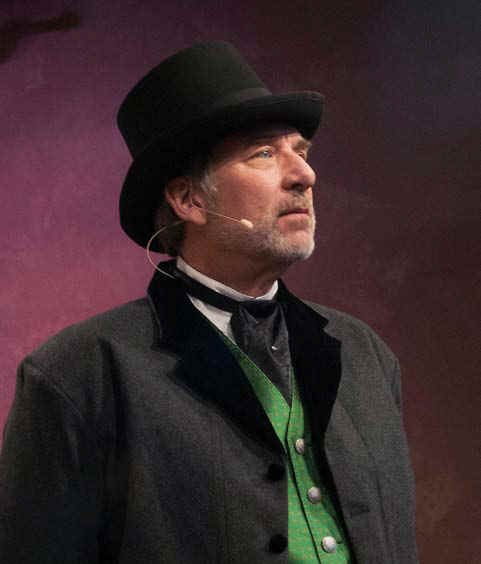 The
problem is things are happening so fast. Oh, technology and education. Do you
realize the whole educational system is going to be wiped out in the next ten
years because local linear does not work. Sending kids off to a classroom
without the real understanding of their health, of their minds, of their
desires or their creativities, where creativity has been abolished; sending
them off to a classroom is not going to work anymore. Instead, the children
will be sitting at home on their computers and connecting with people around
the world, not just in their little community; and they're going to have
guidance from a real teacher, and some robots as well, but they're going to be
learning at a self-paced, self-desired level.
The
problem is things are happening so fast. Oh, technology and education. Do you
realize the whole educational system is going to be wiped out in the next ten
years because local linear does not work. Sending kids off to a classroom
without the real understanding of their health, of their minds, of their
desires or their creativities, where creativity has been abolished; sending
them off to a classroom is not going to work anymore. Instead, the children
will be sitting at home on their computers and connecting with people around
the world, not just in their little community; and they're going to have
guidance from a real teacher, and some robots as well, but they're going to be
learning at a self-paced, self-desired level.
These brick and mortar schools that are here now, they're going to be storage closets. They're going to be used for growing marijuana in Colorado (lots of laughter). Only in Colorado, of course. It's all changing. Oh, and the beauty is that you helped to spark it. Yeah, you, “Little old me.” Yeah, you that thought, “Oh, I've just been working through my problems in life.” No, you've been working on consciousness. All of those issues that you've been grappling with and, “How do I handle this? How do I deal with myself?” That is the true University of Consciousness.
All those little problems that you thought you had, you were really taking on consciousness problems of the world. All the little challenges, they really – I've told you this a thousand times – they really aren't yours, but you take them on like such an actor. You say, “Oh, it's my problem and I have these issues.” No. Do you realize most people don't do that kind of almost obsessive worrying that you do and, you know, “What is life?” and “Who am I?” kind of stuff? But you do, and that's what's changing. But that's not my point.
My point is there's a very interesting dilemma on this planet. I love the dilemma; other people aren't going to, but here's the dilemma. The brain (points to his head). Not my hat. My hat's not the dilemma! Some of you are like, “Really? His hat?” No, the brain, the mind, as I said in Keahak.
So there are some people that say that humans only use twenty percent of their brains, their minds. I tell you what, they're using 100 percent every day and struggling (Adamus chuckles). They really do. There's no unused part of the brain! Every day, every part of the developed mind is being used. Now, at times it gets bored and it does things like crossword puzzles or whatever, but it's being used somehow. There's tremendous input/output at all times.
The brain is at its maximum. Technology growing like that, consciousness expanding like that – the brain is screwed (laughter). I was going to say fucked, but … (more laughter and applause) But it's Christmas and … (Adamus laughs) It is. I'm using your terminology. You know, when something is really, like there is no hope anymore – “That football team is just …” or “That person” or whatever. The brain is screwed, absolutely screwed. It is maxed out. It cannot handle what comes next, and that's an interesting amazing proposition.
It's going to lead to interesting things. It's maxed out. It cannot handle any more data or input. You know it. Facts and figures and thinking, thinking stuff. It cannot, yet people are trying. And there's all this stuff. You take, what, ginseng and make your brain grow. No, no, no, no, no. But anyway, the brain is at the max in the developed world pretty much, but soon to be everywhere else. It cannot handle anything else.
You know it. You see it every day. You see it in yourselves, but you see it in other people. They just can't take it, because the brain is also the center point for emotions. This is often overlooked by social scientists, but the brain is also the seat of emotions. So what happens is the brain, not being able to take any more in, any more in, the brain and the emotions simply shut down. They go numb. And then what happens, what you see is people retreating, getting small again – and Cauldre had a term I heard earlier – they live in silos. They confine themselves. A silo is a nice emotional thing to have around you. You know, silo for farming, made out of concrete.
So they live in their silos. They live local linear. They start saying that they're simplifying their lives. They're not simplifying; they're just closing down, shutting down. But there's an interesting dilemma in that. The mind doesn't want to be told to shut down, even though it's at capacity. It's at capacity. But the mind then starts rebelling and pretty soon is going berserk.
The mind is at its max, but it keeps trying, trying, trying, trying. It was programmed to keep going no matter what. It was programmed to always have streams of thoughts, information, even dreams going through it. It was not ever programmed or allowed to just shut down for a little bit. Not even at night, not when you're dreaming. The mind doesn't stop. It's going 24-7.
So we have this dilemma on the planet right now. Humans are maxed out of the brain. It cannot handle anymore, but more is coming. More is coming because of technology, the result of consciousness. What are we going to do?
There will be people that try to then get smarter, but they'll go crazy. They really will go crazy, and then they're going to rely on drugs, vitamins, medications, supplements and everything else to try to calm the mind a little bit.
 There
are some very smart people, very, very smart people out there, but even
they're at capacity, and this is perfect. This is perfect, and where you are
is perfect, because where we go from here, as I talked about in our last
gathering, is beyond the mind.
There
are some very smart people, very, very smart people out there, but even
they're at capacity, and this is perfect. This is perfect, and where you are
is perfect, because where we go from here, as I talked about in our last
gathering, is beyond the mind.
It has to be. It simply has to be. The time to, whether you call it fantasy, whether you call it knowingness, whatever it is, you've got to make the leap now.
Now more than ever is a time of two worlds. We've talked about it. You've seen it coming for the last, what, fifteen years. Now is that time of the two worlds, and you're going to be living in that for a while, for quite a while, and that's okay.
The two worlds, and Linda can I get you – oh, Grinch, can I get you up here on the board, please.
LINDA: My pleasure.
ADAMUS: The world is going to be, and I'm going to use different ways of describing it, but, if you would, two columns on the page.
LINDA: Okay.
Thinkers and Knowers
ADAMUS: The world is going to be divided into Thinkers and Knowers. Thinkers on the left, Knowers on the right. That's going to be one of the biggest differences, and there won't be a lot of Knowers. A Knower is one who uses gnost. A Knower is one … I have to stop for a minute and point out.
So, dear Cauldre and Linda were – ahem – complaining about my sudden change when they thought they were going to film DreamWalker Birth and suddenly were doing something else. But a Knower just goes with it. Doesn't complain. Doesn't …
LINDA: We can complain a little bit (a few chuckles).
ADAMUS: No. And it was a very good example, because they were following a local linear path. Local meaning, do you realize how many people on this planet never live more than 25 miles, 35 or 40 kilometers, from where they grew up! That's local. Some people travel a little bit, but most people in their lives will spend about 99.9 percent of their time in their local environment. That's not so bad. I mean, you pick a place you like and you live there and you're familiar with it, but what also happens is they get local in their thinking. Local, limited. They get local in everything they do. And they get local in their thinking as well, and the thinking isn't creative. It doesn't go anywhere.
So you're going to have a world now divided into Thinkers and Knowers, and underneath Knower put, parenthesis, creative. Creative. And, again, when I use the term creative I'm simply talking about exponential going … the word creative.
LINDA: Creative? Under …
ADAMUS: Creative. C-r-e…
LINDA: Under Knowers?
 ADAMUS:
Yes, ma'am. So you're going to see this world divided into the two, and the
funny thing is the Knowers are the ones who are in the moment, absolutely
allowing, absolutely trusting themselves, letting that creative flow come
through, easing the pressure on the mind, because once one allows themselves
to be a Knower, a creative being, it takes such tremendous pressure off the
mind. And the mind stops its games of emotions and problems and worrying and
gets on with what the mind does best, basically data, facts and figures,
remembering history and knowing how to maneuver in this environment. That's
really what the mind does best, but the mind is not very good at thinking
through anything else.
ADAMUS:
Yes, ma'am. So you're going to see this world divided into the two, and the
funny thing is the Knowers are the ones who are in the moment, absolutely
allowing, absolutely trusting themselves, letting that creative flow come
through, easing the pressure on the mind, because once one allows themselves
to be a Knower, a creative being, it takes such tremendous pressure off the
mind. And the mind stops its games of emotions and problems and worrying and
gets on with what the mind does best, basically data, facts and figures,
remembering history and knowing how to maneuver in this environment. That's
really what the mind does best, but the mind is not very good at thinking
through anything else.
So we're going to have a world of Thinkers and Knowers. You are the Knowers, the knowingness, the gnost. You go beyond thinking. The mind is maxed out, and suddenly you just take that leap into knowingness.
It's a big leap. It's really a little leap, but it's a little leap once you do it, but it's a big leap when you think about it in advance.
So to continue on the board here, Linda, we have, in the Thinker category, they're local and linear.
LINDA: Local and linear.
ADAMUS: Local and linear. When you start contemplating the world, the cosmos, you're no longer a local linear Thinker. When you start contemplating the world, the entire cosmos, suddenly you have to go out of thinking, because the mind doesn't know how to do it. Suddenly, you have to go into knowingness, gnost.
So over here in this column we also have power.
LINDA: Power?
ADAMUS: Power. Power. The world is a big power game, and power is an illusion of the mind. There is no power. It's all an illusion. There is no power anywhere, until one actually believes it and starts living it. But you have this whole equation of power on this planet. What you're seeing right now in the news, it's all about power. I'll come back to that later. It's all about power.
You'll realize though, as a Knower, that, next – you might as well just stay up here, Grinch – that instead of power, everything is self-energy. Self-energy.
LINDA: Self-energy.
 ADAMUS:
Two words. Self-energy. Self-energy means as consciousness you attract
all the energy to you, whether it's already in your physical being,
whether it's already just simply in your field.
You attract it and it's there. You don't need power, because your
consciousness brings forth all the energy you need. Then you start looking
younger, Edith, yeah, when you stop thinking so much.
ADAMUS:
Two words. Self-energy. Self-energy means as consciousness you attract
all the energy to you, whether it's already in your physical being,
whether it's already just simply in your field.
You attract it and it's there. You don't need power, because your
consciousness brings forth all the energy you need. Then you start looking
younger, Edith, yeah, when you stop thinking so much.
Yes. Over here on this we have the mind, of course, the brain at capacity. It's this thing about you're only using twenty percent of your mind. You may be only using twenty percent of your life, your true capabilities, but your mind, you're using all of it.
So over here we have the mind, yes, and over here of course, the gnost.
LINDA: (bumps her hand) Ouch.
ADAMUS: Ouch. Ouch. On the left side we have, I'm going to call it gravity. Gravity. Write two lines, gravity on one line, Timespace on the other. People are in that. They're stuck in that.
LINDA: Timespace below it?
ADAMUS: Yes, please. They're stuck in that. You're going to realize – you are starting to realize – that actually Timespace moves through you. You don't move through it. It's huge once you start realizing that. It's kind of odd at first, but once you start realizing it, it's huge. So you don't need that. We don't even need a world over here, because – yes, we do need a word.
Here gravity is an opposing force. If you drop something … (Linda gasps as Adamus drops a water bottle) drop something, it's an opposing force. It falls to the ground. Over here put just gravity with a plus sign. Gravity is going to serve you. Gravity is going to serve you.
Actually, there's all this quest for energy on the planet and Jesus, they're putting up solar panels like they're going out of style, and they are going to go out of style; that's the funny thing (Adamus chuckles). If you're spending a lot money this next year on solar panels, so sorry, because the real energy on this planet – the real available easy energy – is gravity. You realize the force that's in gravity on this planet that causes that (the water bottle) to drop also causes – it has the same potential for that to go up. It does. Scientists will think I'm crazy, but I'm going to have that last laugh in a couple years.
Gravity has an inherent built-in energy in it all the time. It's in neutral, but in the reality that you're in, everything falls to the ground. But they're going to realize that there is all the energy you ever need in gravity on this planet, but that's a whole other thing.
On this side write physical.
LINDA: Physical.
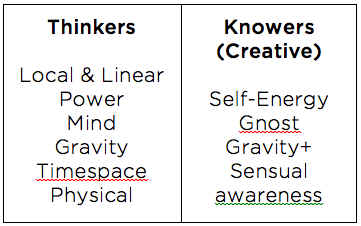 ADAMUS:
Physical. You live in physical bodies
and the Knowers are going to realize that the physical body is simply one of
the sensory tools that they have. Just one. So I'm really not sure what to
write on that side, other than … just put sensual awareness.
ADAMUS:
Physical. You live in physical bodies
and the Knowers are going to realize that the physical body is simply one of
the sensory tools that they have. Just one. So I'm really not sure what to
write on that side, other than … just put sensual awareness.
LINDA: Sensual?
ADAMUS: Sensual awareness. The physical body is your way of perceiving reality. These are your senses and your mind. But there is a sense, and many senses actually, beyond that that are not associated with the body. So you're going to start living in a very “and” reality.
Two Worlds
We could go on and on and on with that, but we have other things to do today. I want you to start seeing the world – right now, the world is moving into two worlds like never before. I'll proclaim this date – December 5, 2015 – as the date that we suddenly realized it is two worlds, officially two worlds.
LINDA: Wow. Wow, wow.
 ADAMUS:
It's been leading up to that for a while. There's been the whole engagement
process and then then – boom! – we're here. Officially, two worlds.
ADAMUS:
It's been leading up to that for a while. There's been the whole engagement
process and then then – boom! – we're here. Officially, two worlds.
Good news, bad news. Good news, bad news. There are a lot of kumbaya-ers that aren't going to like it. “Oh, we're all one world.” It's like, no you're not. No, you're not.
So I want you to be aware of these things, because you're still living amongst all this (Thinker side). You come from all this. It's ingrained in your system. And all of this, all of this is going to try to pull you back when you try to go to that (Knower side). It's going to suck you right back in and say, “You're a physical being, you can feel how it hurts. You are an emotional-mental being. You're linear. You're limited. You've got to be crazy if you think you can defy gravity and time and space. You're nuts.” All that stuff is going to try to pull you back. All that stuff is going to try to hold you in, and you've already experienced that. But the reality is that you are naturally moving over to here (Knowers). That's why I asked the question up front, how'd you do this year with being your natural self?
It's not your mind that is moving you to here. It's not because you've studied spiritual classes that's moving you over to here. It's not because you're eating certain kinds of food that's moving you over. You're moving over (to Knower) just because it's the natural movement, the natural expansion, and it's also your desire.
Also, I've got to put one more thing on the list here. I'm just going to put passion right there, and when I say passion, it's the old human passion, you know, what excites you, what gets you going. By the way, there's a huge drop in global passion, huge drop amongst individuals, but if it's measured globally, passion is going like that (down). People don't know what to do anymore.
You come over here on this side and you realize that passion is old fashioned (Adamus chuckles). I like that.
LINDA: Ha, ha, ha.
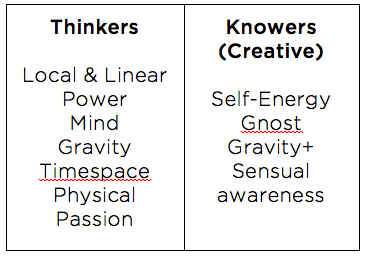 ADAMUS:
Passion is old fashioned. You don't need that outer stimulation. You don't
need those little triggers in you anymore. You don't really need the word
'passion' anymore. Now, I know it's been awful going out of your old passions
– “What am I here for? Why am I here?” Shut up. Just … (Adamus
chuckles)
ADAMUS:
Passion is old fashioned. You don't need that outer stimulation. You don't
need those little triggers in you anymore. You don't really need the word
'passion' anymore. Now, I know it's been awful going out of your old passions
– “What am I here for? Why am I here?” Shut up. Just … (Adamus
chuckles)
Passion is a word that's going to disappear from your vocabulary, because you're not going to have to go looking for passion. You're not going to have to passionate yourself every few days. You're not going to have to … It's always there. You know, it's just the I Am. “I am living.” Who needs to have all these passions, whether it's, I don't know, coin collecting or bike races or whatever you do for your passion. Every moment is the passion, but passion will go out of your vocabulary. So there's no really corresponding word over there. Who needs it when you're alive and conscious?
So officially today I'm going to mark as the day that the two worlds began. It's been in the making for a long time, but it's here. It's now. The biggest difference is going to be Thinkers and Knowers, those who are still in their minds, still trying to figure out things in their mind. Not that the mind is bad, but it's maxed out. It's absolutely maxed out.
Last month when we got together I talked about fantasy and talked about a lot of these things, but I said fantasy is the way out. It's the way beyond. Fantasy, allowing yourself to go beyond the mind into things that the mind would judge as being undoable, unbelievable, made up. Going to fantasy, which is as real as all of this; it's just real in a different way. Maybe not real in the physical, local, linear way, but it's still real.
That leap into the beyond, beyond the mind – and it's a big leap because the mind is scared shitless about it. The mind is like, “What's going to happen?” Shhh! Mind, it's all natural. It's all natural.
Dear mind, just as the body, every cell in the body has been waiting, holding a space for the light to come in, dear mind, so have you been waiting for this leap into gnost, the beyond. It's a different way of sensing, thinking. It takes us out of local linear into global exponential into cosmic exponential. It's not going to be the same platform; it's not going to be the same basis for reality. It's totally different. And we'll still be here doing this, and we'll still be able to sense with our human senses, but we're moving into something else. And the funny thing is, dear mind, the funny thing is on this official date now – it's official because I said it and it's written (on the easel); once it's written it's official (laughter) – on this official day of the recognition of two worlds on this planet, the world of the Thinkers and the world of the Knowers; dear mind, on this date without any effort whatsoever, I'm going to allow myself, in a very natural way, just to be there.
Mind, you're not going to be able to figure it out right away. It might not make any sense to you, but that's where we're going. And we're going there naturally, no force, no effort, no thinking.
Dear mind, on this date, December 5, 2015, we're going to play some Christmas music. Some nice Christmas music, if you'd get that Christmas music ready. We're going to play some nice Christmas music and we're just going to allow it naturally.
(lively Christmas music begins)
Allowing Knowingness Merabh
What is it? That's “I Wish You a Merry Christmas” (referring to the song), but what is it? This knowing, where is it? What does it do? Shhh.
You see, if you try to figure – could we get these lights down? This is a merabh, believe it or not. Half of everybody is already asleep. We had to do a merabh (a few chuckles).
So, dear mind, we're not going to think through this, we're just going to allow it, because dear mind if you start thinking, then it's just mental. Then it's really not knowingness. So we're just going to sit here in this very, very comfortable energy, listening to some delightful Christmas music, and we're just going to go there. Well, actually, we're just going to let it come to us.
There is no process involved in this. There's no thinking. There's no analysis in it. There is just allowing.
There is no plotted way of doing this. It's just allowing. But, you know, in a funny kind of way, you've got nothing else right now. As I said, the mind is at capacity. People talk about the challenges on this planet – food and fuel and water, whatnot – but the real challenge is that the mind really can't take anymore, nor should it.
So now we birth the Knowers. This would make a good science fiction movie – “The Knowers versus the Thinkers. We birth the Knowers, and the funny thing about them is that they live in the moment. They allow everything to flow to them. They don't have to think it through. It's an easier life because it's just there. They don't even have to think about it.
 When
I say 'there' I'm not just talking about some money or health or things like
that. I'm talking about the knowingness of the answers to big questions, the
knowingness of how to solve big issues that face the individuals or the
planet, without thinking. That's a funny one. Without thinking.
When
I say 'there' I'm not just talking about some money or health or things like
that. I'm talking about the knowingness of the answers to big questions, the
knowingness of how to solve big issues that face the individuals or the
planet, without thinking. That's a funny one. Without thinking.
You've been so accustomed to thinking through with very, very little infusion of creativity, but just taking a very logical path on things. So it's going to seem very odd being a Knower, because it's just going to be there. People are going to say, “Well, how do you know?” “Because I'm a Knower.” (a few chuckles)
It's just there. “Well, where do you get this from?” “It's just there” – yeah, you do not say “I don't know” (Adamus chuckles) – “It's just there.”
“Well, did you have to study for it?” No. It's just there.”
“What kind of preparation do you do for it?” None. It's just there.”
“Can you teach me how to do it?” they'll say. “No.” (Adamus chuckles) You're going to think back to your own journey to get to this point, what you thought started out, what you thought was going to be a spiritual journey, but it's really not.
It's just there, and my friends, the less you try, the less you effort, the less you struggle with it, like a lot of you are doing right now, the more it's just there. It emerges. It comes forth. You do not have to go out and get it or earn it in any way. It's just there. You don't have to be smart. Matter of fact, it's better that you're not real smart. It tends to get in your way.
You don't have to make sense out of it in the old Thinker way.
Oh! The old Thinker way, that was cumbersome.
You don't have to worry about it fading away, like your mind is going to do anyway. That's what I love about Thinkers. They think and think and think and then they lose it all. Poof! It goes away.
 You
get older. Your memory slips. You know where they go? They start going into
fantasy. They start going into that other world that's always been there. And
then everybody says, “Well, look. They're going crazy.” No. Crazy is being
in the zoo.
You
get older. Your memory slips. You know where they go? They start going into
fantasy. They start going into that other world that's always been there. And
then everybody says, “Well, look. They're going crazy.” No. Crazy is being
in the zoo.
So the amazing thing, the real blessing is that you don't have to do a damn thing to get here, other than just to allow this natural state. And, again, your mind is going to say, “Well, did I get it? Did I get it? Or was I asleep?” Shhh! You got it. You got it.
“Yeah, but where is it?” You'll see. You'll see. It's going to come up in a lot of interesting different ways. Some ways that will, oh, surprise you; some ways that will confound you; some ways that are going to make you really frickin' uncomfortable, because they're going to break you from old routines.
That's why I asked the question before. You go to this class of yours; you learn super advanced, more advanced software programming, but let's say it's like a blank screen. The entire time you're there you don't comprehend a thing. Doesn't make sense. “Oh, no! What's wrong with me?! There's something wrong?” No. No, because actually as a Knower now, you're still going to have the knowledge of software programming. It's still there, but suddenly something changes and you're going to know code that is not zeros and ones. You're going to know code that's the universe, code that is consciousness and light. You're going to go beyond electronic software coding into true consciousness coding. It's a lot more fun. A lot more fun.
And then all that software programming, well, leave that for the young ones, you know? Leave that for the others, because you're going to be on to deeper, amazing understandings that go beyond the mind.
So the mind, the mind of the planet is maxed out. People are going to keep trying to use it, trying to better it. They're going to infuse it with chemicals and more thoughts and everything else trying to stimulate it, trying to expand it, again, a little linearly. It's not going to go very far.
But for the Knowers – the intuitives, the creatives, the gnost – you suddenly leap to a whole different level. And … and you still have the mind, but it's not the dominating force anymore. You still have all the facts and figures and the memories and everything else, but they are not what is guiding your ship anymore.
I'll tell you this right now: it is a little tough adapting to it, because it disrupts. Knowingness is a disruptive technology. It disrupts.
By the way, disruptive technologies, I love them. They're going to change the world. They're all around you. But the primary one right now is the disruptive – technology, but it's really a disruptive consciousness – that comes into your life as a Knower. That's going to be the hard part. It's going to change things in your life, but, you know, by now, you're accustomed to it. By now, you're professionals at it.
So let's take a deep breath and with no force or effort – see, isn't that weird? It's like, “Well, how can you do something without force or effort?” That's one of the first lessons, one of the first experiences, I should say, of a Knower. It doesn't take force or effort.
Being A Knower
Remember, our old world over here – force, power, effort, gravity, all the rest of that – the Knower realizes making this type of exponential change takes no power. It doesn't take any energy, any force. Damn it! Damn it, that's a tough one, in a way, for some people. Not for Shea. That's good. But for some it's like, “Yeah, but I didn't feel anything.” That's good. That's really good, because you're not supposed to. Feeling comes from the old physical senses. Feeling comes from the mind and the emotion. So no, you're not going to feel anything right away. We can fade down the music. Don't want you to get too much in the Christmas spirit here (some chuckles).
 So
that's a very interesting point, then we'll get on to one more thing. You
expect to feel something – an electric charge going through your body or
those chills going up and down. You expect a biophysical response of some sort
to think that it worked. And what you're going to realize as a Knower is that
you don't have to have that. As a matter of fact, usually you won't get it.
Ah! You're going to say, “But then how do I know something happened, you
know?” Well, you're a Knower. You just do.
So
that's a very interesting point, then we'll get on to one more thing. You
expect to feel something – an electric charge going through your body or
those chills going up and down. You expect a biophysical response of some sort
to think that it worked. And what you're going to realize as a Knower is that
you don't have to have that. As a matter of fact, usually you won't get it.
Ah! You're going to say, “But then how do I know something happened, you
know?” Well, you're a Knower. You just do.
Well, here's what happens. There is no biophysical response to that change, to knowingness, to something that just happened like right now – shifting from being Thinkers to Knowers. There's no real response other than I would say the biggest response you're going to get is just feeling a little tired, a little dozy, you know. But that's the energy here today.
But what happens is because there are, you could say, a probe going out from both your brain and your consciousness saying, “Did something happen? We didn't sense anything. Did something happen?” So you're probing. That stimulates the new – actually the natural but what's going to be for you the new – sense, sensual awareness, the new feeling.
You have five physical senses and your brain. Your body, you've gotten used to. But suddenly it's going to stimulate real sensing.
We could call it angelic senses or whatever, but they're your natural ability to perceive realities, and that's plural. If Linda wasn't – oh, Grinch is awake now. Your natural ability to sense realities. Would you write that on a new piece of paper? Just “Your natural abilities to sense realities.” Realities, plural. It's going to reawaken that old what I would call very natural ability to perceive, to sense.
LINDA: Your natural … ?
ADAMUS: Abilities to perceive realities. So that's going to naturally wake up. And suddenly, you're going to have a weird … it's not even a feeling. It's not biophysical. You're just going to have suddenly a weird sensation. And it's going to be weird, because it's not located in your body or really in your brain, and you're going to say, “There's just something going on.” That's when you know you're awakening – or reawakening – that sense. That sense.
So let's take a good deep breath. We've had a lot of talk, really a big distraction.
What did you just do? You said, “Okay, I'm willing to go beyond the brain and I don't know what it is, but I'm okay with going there.” You okay with that? (audience agrees) Good. Good. Okay.
Let's take a good deep breath. Good deep breath.
I'm going to shift gears here a little bit. And John, could we get just regular merabh music, not Christmassy.
Let's take a good deep breath.
(music begins)
Merabh for Change
And I want to acknowledge all of you who are going to naturally allow yourself to go from Thinker consciousness to Knower consciousness or I Am consciousness.
I want to acknowledge all of you who kind of knew that it was coming anyway.
The biggest challenge I see on this planet is that the brain cannot comprehend what comes next – technology or philosophy or challenges. The mind is not going to be able to handle it. There are those who then are going to try to get machines to do it, computers to do it. But you and I know that a computer is simply an extension of the mind. Then they're going to try artificial intelligence of computers, and that's not going to work either. But there's going to be a very small but amazing group on this planet who have transcended being the Thinkers. They're now the Knowers.
Yeah, I want to leave you with this on a very different note.
There are tremendous changes taking place – you're very aware of the ones that have been taking place within you, but tremendous changes that are taking place on the planet right now – and they have to do with freedom. They have to do with moving beyond the mind, which is part of the freedom equation. And what you're seeing on the planet right now is a resistance – resistance to higher consciousness, resistance to going out of the mental era. The resistance is natural. It's kind of a result of the gravity of change. Any time there is a change within a reality it creates kind of a vacuum, a gravity, a pull.
So that's going on right now on your planet. You're seeing it and it's going to continue. You see it in terms of terrorism, terms of religions, politics, banking. But, my friends, these are all systems that are on their way out. They're not leaving gracefully, of course. They're trying to hang on to power. They're trying to hang on to their old ways of doing things.
They're doing it through what you call terrorism, but what terrorism really is is the instilling of fear, the undermining of confidence. They're doing it – and there's not really that many actually. These terrorism acts that you see, these are not nations that are fighting other nations. They're actually really not religions fighting religions. Sometimes it would appear that maybe it's a religious thing, but religions are a product of the mind, and when mind tries to hold on to power, the easiest access point for resisting change – one of the easiest – is religions.
Religions are all about power. They're all about mind. And so when a terrorist is looking for the venue, when a terrorist is looking for the dressings, how they do their work, it's easy to go to religion. It's easy to hypnotize people, to incite people, to do it under the banner of heaven.
The terrorists really aren't religious. They're really not. There's a lot of rhetoric, a lot of hypnosis, but they're really not. They have no more consciousness than a grain of sand.
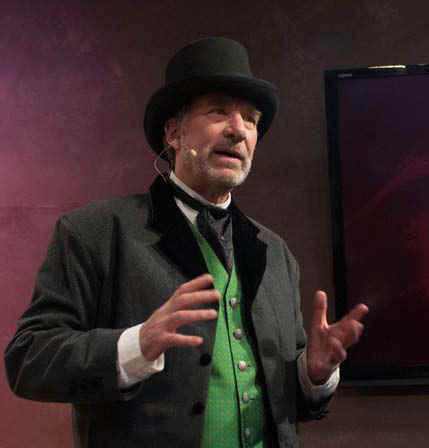 But
they're using this as their launching point, and what they're really doing is
undermining trust. They're inciting fear. They're causing great distraction.
They're causing people to now just focus on that; talk about terrorist acts.
How much of the conversion in the last month since we met, how much of the
conversation on the news, at the water cooler has been about terrorism?
But
they're using this as their launching point, and what they're really doing is
undermining trust. They're inciting fear. They're causing great distraction.
They're causing people to now just focus on that; talk about terrorist acts.
How much of the conversion in the last month since we met, how much of the
conversation on the news, at the water cooler has been about terrorism?
And they undermine it so beautifully. They undermine the very fabric of life, when suddenly it's your next-door neighbor. That nice couple that was living next door to you, you didn't know they were making explosives to go out and kill dozens, hundreds of people. That's undermining. That is fear. That will cause neighbor to turn on neighbor. That will cause friends to become suspicious of friends. That will even cause families to question, to wonder about their own family members. It doesn't take much, you see. It doesn't take armies anymore.
This is all ultimately about power, about the mind, about holding on to the old. This is all a resistance to freedom.
One of the greatest tools that is used very, very effectively is hypnosis. In about ten minutes a person who is considered normal, a person with a regular job, a person who has tried to do good all their life, in ten minutes a person can be turned into a terrorist, and they don't even know it. They do not even know it.
Hypnosis works so well because the mind is linear and local. The mind is susceptible. The hypnosis works best when somebody is mental, I mean, very much in the mind. It's much easier to hypnotize somebody who's what you call smart than the village idiot. Thank God for the village idiot.
So when you hear about things like what's happened in Paris or San Bernardino, when you hear about airplanes suddenly falling from the sky and all these other things, and you wonder what's happening, well, there's a lot of hypnosis going on, and the hypnosis can be latent. Don't think in terms of the old pocket watch, you know, “You are getting sleepy.” The methods to hypnosis are very refined, and they're coming through all the time. You just don't know it.
The hypnotic suggestions can be latent for years. It's not unusual now to have an implant that was given twenty years ago, and it is still as effective today when it is triggered. The trigger could be a combination of sounds or words. Sometimes they're even into mathematical formulas and – ahem – into software programs.
And I say this because I want you to understand, it can get very fearful out there. And I know, even as I'm saying this, you're wondering, “Oh, my gosh. Was I? Was it me? Did I get hypnotized? Am I being hypnotized right now?” (some giggles as Adamus teasingly waves his hands)
Hypnosis is a very scary thing, and it's a byproduct of the mind, of a mental society. That's why it's so easy. Who needs bombs? Who needs militaries when it's the neighbors who've been hypnotized? Suddenly, the phone rings three times and it stops ringing. Suddenly, the phone rings two times and stops ringing. And then it rings once, and all the signals are there and that nice happy couple down the street have suddenly gone tactical.
And right now some of you are saying, “Adamus, where are you going with this? This is frightening.” Absolutely, but I want you to realize something. I want you to go back up here to – if you'd turn the page back. Hypnosis only affects Thinkers. It only affects the Thinkers. It cannot touch one who's in knowingness.
 So
if you're wondering, if you're thinking, “Did I get hypnotized? Am I
vulnerable to this?” Once you allow knowingness, no. No, you are not. You
are not susceptible to it, because the way this sense, the true I Am sense
works, you cannot be limited by the linear. You can't.
So
if you're wondering, if you're thinking, “Did I get hypnotized? Am I
vulnerable to this?” Once you allow knowingness, no. No, you are not. You
are not susceptible to it, because the way this sense, the true I Am sense
works, you cannot be limited by the linear. You can't.
Once the sense really starts integrating into your life, there is a constant creative pursuit of more answers, more potentials, more experiences. So once you go beyond linear and local and you're in this sense of the I Am, it will never limit you to a hypnotic thought.
The knowing is exponential. It grows. It feels. It knows in all ways. The mind is linear. That's why it's very easy to put a hypnotic plant into a linear path that continues going on a linear path. It doesn't naturally explore other realms, so that hypnotic implant stays. But in knowingness, you cannot be. You cannot be.
So I wanted to point this out, because, yes, it's going to be a crazy world out there. No, you don't need to worry about it for yourself, but the world is going to get crazier and crazier. We have a convergence of technology, of the mental being maxed out; we have a convergence of an imbalance in the world of the haves and the have nots. All hell's going to break loose – in a very good way.
See, right away, dear Linda, Grinch, “Oh!” No. No, my friends. I want you to take a moment. I want you take this moment on this day of recognizing two worlds. It's not “Yuck.” It is “Wow!”
You're the Knowers. You're the creative. What comes next? What comes next for you? Go beyond the linear.
Now, right now, let that knowing come in. What comes next for you, off your linear path? What comes next for the planet, beyond the linear path? The linear path would be yuck, but what comes next when you combine technology growing exponentially, when you combine it with consciousness, awareness, creativity; when you combine the mind maxing out, when you combine the desire of people for something better on this planet, now what?
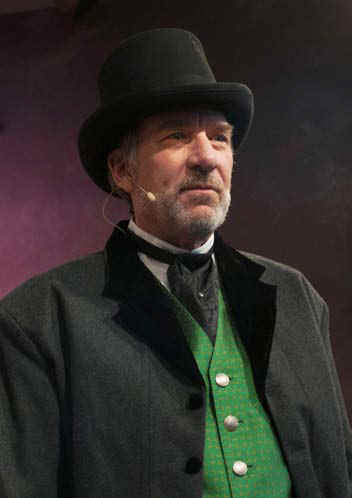 What
comes from the knowingness, not from the mind? What's possible?
What
comes from the knowingness, not from the mind? What's possible?
Yes, change. Disruptive systems, technologies, patterns, disruptive. But does it have to be bad in the old Thinker way? Not at all. And that's where you come in. That's where the fantasy, which is not fantasy at all, that's where the knowingness, that's where the imagination comes in.
All these disruptive technology systems, patterns, vibrations; does disruption mean destruction?
Or does it mean evolution?
Let's take a deep breath with that.
And, with that, my friends, always, always, always know that all is well in all of creation.
Thank you, my dear friends. Thank you (audience applause).
* * * * * * * * * * * * * * * * * * * * * * * * * * * * * *
Please freely distribute this text, in its entirity, on a non-commercial, no-charge basis, including these notes. All other uses must be approved in writing by Geoffrey Hoppe,Golden, Colorado.
See contacts page on website: www.crimsoncircle.com
© Copyright 2015 Geoffrey Hoppe, Golden, Colorado USA 80403